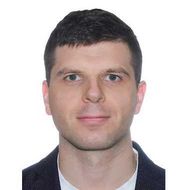AI to Enable Accurate Modelling of Data Storage System Performance

Researchers at the HSE Faculty of Computer Science have developed a new approach to modelling data storage systems based on generative machine learning models. This approach makes it possible to accurately predict the key performance characteristics of such systems under various conditions. Results have been published in the IEEE Access journal.
Data storage systems play an important role in today’s digital world, as they are responsible for the safety and prompt availability of vast amounts of information. These systems consist of many components, including controllers, HDD and SSD disks, as well as cache memory, which work together to ensure fast and efficient operation. To achieve optimal performance, it is essential to accurately predict how these systems will function in different scenarios, such as when the load on the system changes.
Researchers at the HSE Faculty of Computer Science developed a new approach to modelling data storage system performance, which relies on generative machine learning models. The authors proposed a method that provides high-precision predictions of the key performance characteristics of the systems: the number of input/output operations per second (IOPS) and latency.
The modelling includes two stages. First, the scientists collect data by measuring the system’s performance under various loads and configurations. This data is then fed to two special generative models: the CatBoost regression model and the normalizing flow model. CatBoost works well with tabular data and can accurately predict average values and performance deviations. The normalizing flow model produces a complete distribution of possible outcomes, taking into account data uncertainties and variability.

Mikhail Hushchyn
‘One of the main advantages of our method is that it does not require detailed knowledge of the internal structure of the system components. This is often impossible due to the manufacturers’ trade secrets. Instead, our generative models are trained directly on real-world data. For instance, in our study, we trained a model using 300,000 measurements. This makes our approach versatile and applicable to any type of data storage system,’ says study author Mikhail Hushchyn, a senior research fellow at the HSE Faculty of Computer Science.
The researchers tested the accuracy of the proposed approach using Little's law, a fundamental principle of queuing theory. According to test results, these predictions are highly consistent with real observations: prediction errors range from just 4–10% for IOPS and 3–16% for latency, while the correlation with the observed values reaches 0.99.

Aziz Temirkhanov
‘Our proposed approach opens up broad prospects for optimising and planning the operation of data centres. It makes it possible to predict the behaviour of the system amid load changes, identify potential performance issues, and optimise power consumption. Furthermore, expensive physical experiments are no longer required for accurate modelling,’ stated Aziz Temirkhanov, a junior research fellow at the Laboratory of Methods for Big Data Analysis.
The experimental code and measurements of the storage system performance are publicly available.
The research was carried out within the Mirror Laboratories project of HSE University on improving the efficiency of data centres and data storage systems using artificial intelligence methods.
See also:
Scientists Test Asymmetry Between Matter and Antimatter
An international team, including scientists from HSE University, has collected and analysed data from dozens of experiments on charm mixing—the process in which an unstable charm meson oscillates between its particle and antiparticle states. These oscillations were observed only four times per thousand decays, fully consistent with the predictions of the Standard Model. This indicates that no signs of new physics have yet been detected in these processes, and if unknown particles do exist, they are likely too heavy to be observed with current equipment. The paper has been published in Physical Review D.
HSE Scientists Reveal What Drives Public Trust in Science
Researchers at HSE ISSEK have analysed the level of trust in scientific knowledge in Russian society and the factors shaping attitudes and perceptions. It was found that trust in science depends more on everyday experience, social expectations, and the perceived promises of science than on objective knowledge. The article has been published in Universe of Russia.
HSE and UTM Present Results of Mirror Laboratory's Work at Russian–Malaysian Commission
HSE University–St Petersburg and the Universiti Teknologi Malaysia (UTM) presented the results of two years of work and a development roadmap for the mirror laboratory on social entrepreneurship. The document outlines the strategy for global transformation in the business and digital innovation sphere.
Scientists Uncover Why Consumers Are Reluctant to Pay for Sugar-Free Products
Researchers at the HSE Institute for Cognitive Neuroscience have investigated how 'sugar-free' labelling affects consumers’ willingness to pay for such products. It was found that the label has little impact on the products’ appeal due to a trade-off between sweetness and healthiness: on the one hand, the label can deter consumers by implying an inferior taste, while on the other, it signals potential health benefits. The study findings have been published in Frontiers in Nutrition.
Final of International Yandex–HSE Olympiad in AI and Data Analysis Held at HSE University
Yandex Education and the HSE Faculty of Computer Science have announced the results of the international AIDAO (Artificial Intelligence and Data Analysis Olympiad) competition. Students from 14 countries took part. For the second year in a row, first place went to the team AI Capybara, which developed the most accurate AI model for an autonomous vehicle vision system.
AI Lingua Included in Compilation of Best International AI Practices in Higher Education
HSE University has been acknowledged internationally for its pioneering efforts in integrating artificial intelligence into higher education. The AI Lingua Neural Network developed at HSE was included in the renowned international collection ‘The Global Development of AI-Empowered Higher Education: Beyond the Horizon.’ The compilation was prepared by the Institute of Education (IOE) of Tsinghua University with the support of the Ministry of Education of the People's Republic of China and a global advisory committee, which included experts from Oxford, UCL, Sorbonne, Stanford, and other leading academic centres.
Technological Breakthrough: Research by AI and Digital Science Institute Recognised at AI Journey 2025
Researchers from the AI and Digital Science Institute (part of the HSE Faculty of Computer Science) presented cutting-edge AI studies, noted for their scientific novelty and practical relevance, at the AI Journey 2025 International Conference. A research project by Maxim Rakhuba, Head of the Laboratory for Matrix and Tensor Methods in Machine Learning, received the AI Leaders 2025 award. Aibek Alanov, Head of the Centre of Deep Learning and Bayesian Methods, was among the finalists.
'We View Mathematics as a Universal Language for Natural Sciences, Economics, and Computer Science'
The Laboratory for Geometric Algebra and Applications at the HSE Faculty of Economic Sciences is developing a universal language for mathematics, physics, and other exact and natural sciences. It is creating computational methods that are applied in geometry, physics, machine learning, engineering, computer science, and other fields. The laboratory’s staff, including doctoral students, have published numerous articles in leading scientific journals and have taken part in major international conferences. Dmitry Shirokov, Head of the Laboratory, spoke with the HSE News Service about their work.
HSE Psycholinguists Launch Digital Tool to Spot Dyslexia in Children
Specialists from HSE University's Centre for Language and Brain have introduced LexiMetr, a new digital tool for diagnosing dyslexia in primary school students. This is the first standardised application in Russia that enables fast and reliable assessment of children’s reading skills to identify dyslexia or the risk of developing it. The application is available on the RuStore platform and runs on Android tablets.
HSE University to Join Physical AI Garage Project by Yandex
Yandex is collaborating with leading Russian universities to launch a new educational programme called Physical AI Garage. This initiative unites five universities—HSE University, ITMO, MIPT, MAI, and MEPhI—to train future professionals in physical artificial intelligence by tackling real-world industrial challenges. The programme is free, and participants will receive scholarships.


